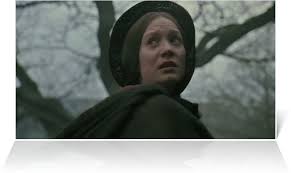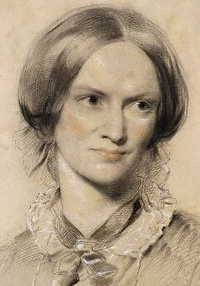By G K
Chesterton
Objection
is often raised against realistic biography because it reveals so much that is
important and even sacred about a man's life. The real objection to it will
rather be found in the fact that it reveals about a man the precise points
which are unimportant. It reveals and asserts and insists on exactly those
things in a man's life of which the man himself is wholly unconscious; his
exact class in society, the circumstances of his ancestry, the place of his
present location. These are things which do not, properly speaking, ever arise
before the human vision. They do not occur to a man's mind; it may be said,
with almost equal truth, that they do not occur in a man's life. A man no more
thinks about himself as the inhabitant of the third house in a row of Brixton villas
than he thinks about himself as a strange animal with two legs. What a man's
name was, what his income was, whom he married, where he lived, these are not
sanctities; they are irrelevancies.
A very
strong case of this is the case of the Brontës. The Brontë is in the position
of the mad lady in a country village; her eccentricities form an endless source
of innocent conversation to that exceedingly mild and bucolic circle, the
literary world. The truly glorious gossips of literature, like Mr Augustine
Birrell and Mr Andrew Lang, never tire of collecting all the glimpses and
anecdotes and sermons and side-lights and sticks and straws which will go to
make a Brontë museum. They are the most personally discussed of all Victorian
authors, and the limelight of biography has left few darkened corners in the
dark old Yorkshire house. And yet the whole of this biographical investigation,
though natural and picturesque, is not wholly suitable to the Brontës. For the
Brontë genius was above all things deputed to assert the supreme unimportance
of externals. Up to that point truth had always been conceived as existing more
or less in the novel of manners. Charlotte Brontë electrified the world by
showing that an infinitely older and more elemental truth could be conveyed by
a novel in which no person, good or bad, had any manners at all. Her work
represents the first great assertion that the humdrum life of modern civilization
is a disguise as tawdry and deceptive as the costume of a 'bal masqué.' She
showed that abysses may exist inside a governess and eternities inside a
manufacturer; her heroine is the commonplace spinster, with the dress of merino
and the soul of flame. It is significant to notice that Charlotte Brontë,
following consciously or unconsciously the great trend of her genius, was the
first to take away from the heroine not only the artificial gold and diamonds
of wealth and fashion, but even the natural gold and diamonds of physical
beauty and grace. Instinctively she felt that the whole of the exterior must be
made ugly that the whole of the interior might be made sublime. She chose the
ugliest of women in the ugliest of centuries, and revealed within them all the
hells and heavens of Dante.
It may,
therefore, I think, be legitimately said that the externals of the Brontës'
life, though singularly picturesque in themselves, matter less than the
externals of almost any other writers. It is interesting to know whether Jane
Austen had any knowledge of the lives of the officers and women of fashion whom
she introduced into her masterpieces. It is interesting to know whether Dickens
had ever seen a shipwreck or been inside a workhouse. For in these authors much
of the conviction is conveyed, not always by adherence to facts, but always by
grasp of them. But the whole aim and purport and meaning of the work of the
Brontës is that the most futile thing in the whole universe is fact. Such a
story as 'Jane Eyre' is in itself so monstrous a fable that it ought to be
excluded from a book of fairy tales. The characters do not do what they ought
to do, nor what they would do, nor, it might be said, such is the insanity of
the atmosphere, not even what they intend to do. The conduct of Rochester is so
primevally and superhumanly caddish that Bret Harte in his admirable travesty
scarcely exaggerated it. 'Then, resuming his usual manner, he threw his boots
at my head and withdrew,' does perhaps reach to something resembling
caricature. The scene in which Rochester dresses up as an old gipsy has
something in it which is really not to be found in any other branch of art,
except in the end of the pantomime, where the Emperor turns into a pantaloon.
Yet, despite this vast nightmare of illusion and morbidity and ignorance of the
world, 'Jane Eyre' is perhaps the truest book that was ever written. Its
essential truth to life sometimes makes one catch one's breath. For it is not
true to manners, which are constantly false, or to facts, which are almost
always false; it is true to the only existing thing which is true, emotion, the
irreducible minimum, the indestructible germ. It would not matter a single
straw if a Brontë story were a hundred times more moonstruck and improbable
than 'Jane Eyre,' or a hundred times more moonstruck and improbable than
'Wuthering Heights.' It would not matter if George Read stood on his head, and
Mrs Read rode on a dragon, if Fairfax Rochester had four eyes and St John
Rivers three legs, the story would still remain the truest story in the world.
The typical Brontë character is, indeed, a kind of monster. Everything in him
except the essential is dislocated. His hands are on his legs and his feet on
his arms, his nose is above his eyes, but his heart is in the right place.
The
great and abiding truth for which the Brontë cycle of fiction stands is a
certain most important truth about the enduring spirit of youth, the truth of
the near kinship between terror and joy. The Brontë heroine, dingily dressed,
badly educated, hampered by a humiliating inexperience, a kind of ugly
innocence, is yet, by the very fact of her solitude and her gaucherie, full of
the greatest delight that is possible to a human being, the delight of
expectation, the delight of an ardent and flamboyant ignorance. She serves to
show how futile it is of humanity to suppose that pleasure can be attained
chiefly by putting on evening dress every evening, and having a box at the
theatre every first night. It is not the man of pleasure who has pleasure; it
is not the man of the world who appreciates the world. The man who has learnt
to do all conventional things perfectly has at the same time learnt to do them
prosaically. It is the awkward man, whose evening dress does not fit him, whose
gloves will not go on, whose compliments will not come off, who is really full
of the ancient ecstasies of youth. He is frightened enough of society actually
to enjoy his triumphs. He has that element of fear which is one of the eternal
ingredients of joy. This spirit is the central spirit of the Brontë novel. It
is the epic of the exhilaration of the shy man. As such it is of incalculable
value in our time, of which the curse is that it does not take joy reverently
because it does not take it fearfully. The shabby and inconspicuous governess
of Charlotte Brontë, with the small outlook and the small creed, had more
commerce with the awful and elemental forces which drive the world than a
legion of lawless minor poets. She approached the universe with real
simplicity, and, consequently, with real fear and delight. She was, so to
speak, shy before the multitude of the stars, and in this she had possessed
herself of the only force which can prevent enjoyment being as black and barren
as routine. The faculty of being shy is the first and the most delicate of the
powers of enjoyment. The fear of the Lord is the beginning of pleasure.
Upon
the whole, therefore, I think it may justifiably be said that the dark wild
youth of the Brontës in their dark wild Yorkshire home has been somewhat
exaggerated as a necessary factor in their work and their conception. The
emotions with which they dealt were universal emotions, emotions of the morning
of existence, the springtide joy and the springtide terror. Every one of us as
a boy or girl has had some midnight dream of nameless obstacle and unutterable
menace, in which there was, under whatever imbecile forms, all the deadly
stress and panic of 'Wuthering Heights.' Every one of us has had a day-dream of
our own potential destiny not one atom more reasonable than 'Jane Eyre.' And
the truth which the Brontës came to tell us is the truth that many waters
cannot quench love, and that suburban respectability cannot touch or damp a
secret enthusiasm. Clapham, like every other earthly city, is built upon a
volcano. Thousands of people go to and fro in the wilderness of bricks and
mortar, earning mean wages, professing a mean religion, wearing a mean attire,
thousands of women who have never found any expression for their exaltation or
their tragedy but to go on working harder and yet harder at dull and automatic
employments, at scolding children or stitching shirts. But out of all these
silent ones one suddenly became articulate, and spoke a resonant testimony, and
her name was Charlotte Brontë. Spreading around us upon every side to-day like
a huge and radiating geometrical figure are the endless branches of the great
city. There are times when we are almost stricken crazy, as well we may be, by
the multiplicity of those appalling perspectives, the frantic arithmetic of
that unthinkable population. But this thought of ours is in truth nothing but a
fancy. There are no chains of houses; there are no crowds of men. The colossal
diagram of streets and houses is an illusion, the opium dream of a speculative
builder. Each of these men is supremely solitary and supremely important to
himself. Each of these houses stands in the centre of the world. There is no
single house of all those millions which has not seemed to some one at some
time the heart of all things and the end of travel.
From “Varied
types”

